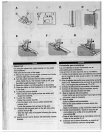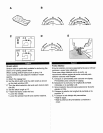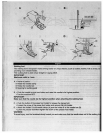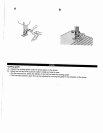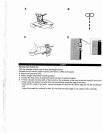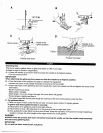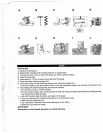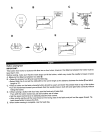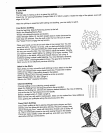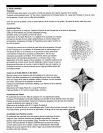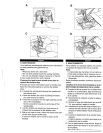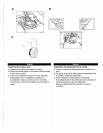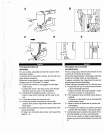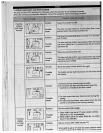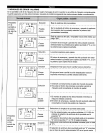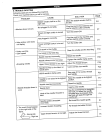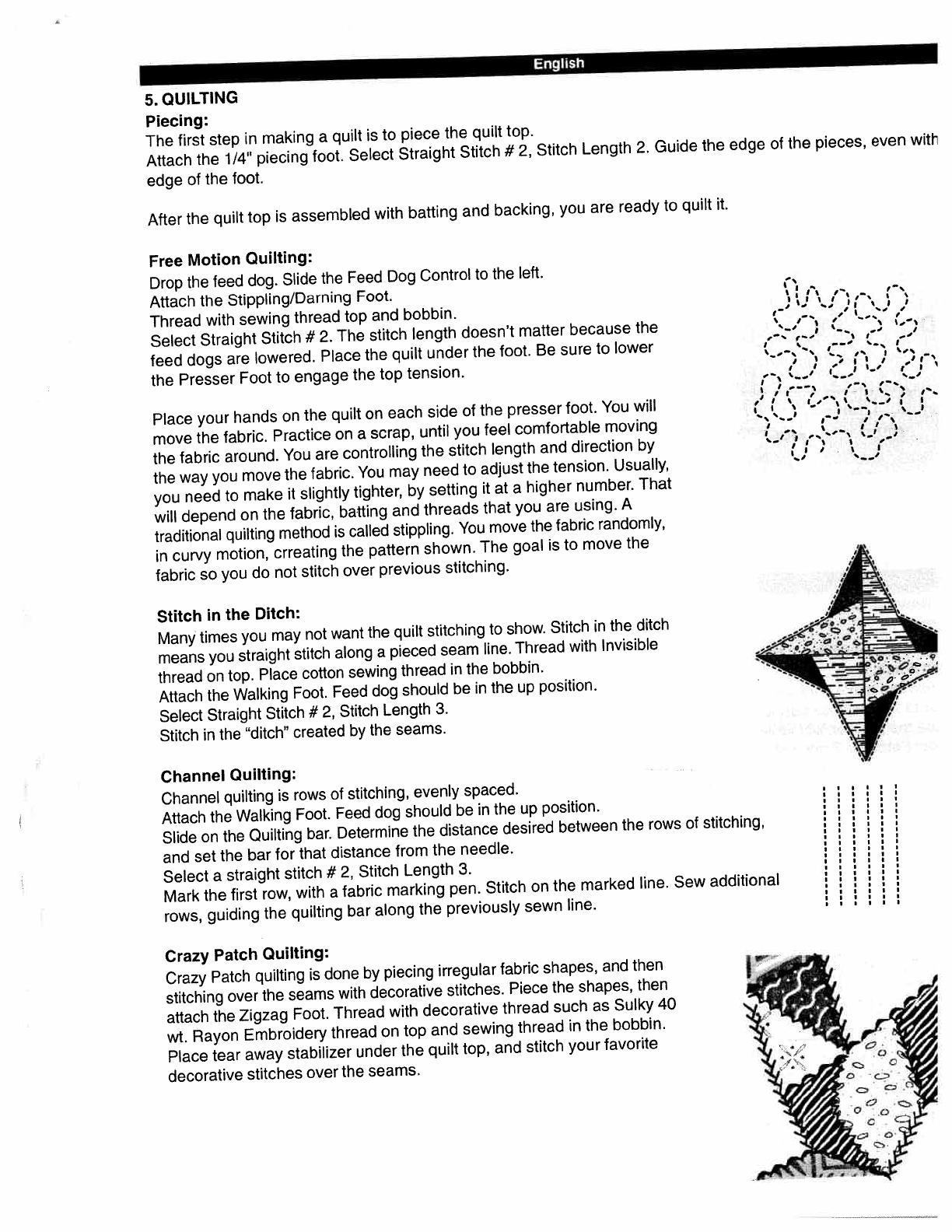
English
5.
QUILTING
Piecing:
The
first
step
in
making
a
quilt
is
to
piece
the
quilt
top.
Attach
the
1/4’
piecing
foot.
Select
Straight
Stitch
#2,
Stitch
Length
2.
Guide
the
edge
of
the
pieces,
even
with
edge
of
the
foot.
After
the
quilt
top
is
assembled
with
batting
and
backing,
you
are
ready
to
quilt
it.
Free
Motion
Quilting:
Drop
the
feed
dog.
Slide
the
Feed
Dog
Control
to
the
left.
Attach
the
Stippling/Darning
Foot.
Thread
with
sewing
thread
top
and
bobbin.
Select
Straight
Stitch
#
2.
The
stitch
length
doesn’t
matter
because
the
feed
dogs
are
lowered.
Place
the
quilt
under
the
foot.
Be
sure
to
lower
the
Presser
Foot
to
engage
the
top
tension.
Place
your
hands
on
the
quilt
on
each
side
of
the
presser
foot.
You
will
move
the
fabric.
Practice
on
a
scrap,
until
you
feel
comfortable
moving
the
fabric
around.
You
are
controlling
the
stitch
length
and
direction
by
the
way
you
move
the
fabric.
You
may
need
to
adjust
the
tension.
Usually,
you
need
to
make
it
slightly
tighter,
by
setting
it
at
a
higher
number.
That
will
depend
on
the
fabric,
batting
and
threads
that
you
are
using.
A
traditional
quilting
method
is
called
stippling.
You
move
the
fabric
randomly,
in
curvy
motion,
crreating
the
pattern
shown.
The
goal
is
to
move
the
fabric
so
you
do
not
stitch
over
previous
stitching.
Stitch
in
the
Ditch:
Many
times
you
may
not
want
the
quilt
stitching
to
show.
Stitch
in
the
ditch
means
you
straight
stitch
along
a
pieced
seam
line.
Thread
with
Invisible
thread
on
top.
Place
cotton
sewing
thread
in
the
bobbin.
Attach
the
Walking
Foot.
Feed
dog
should
be
in
the
up
position.
Select
Straight
Stitch
#
2,
Stitch
Length
3.
Stitch
in
the
“ditch”
created
by
the
seams.
Channel
Quilting:
Channel
quilting
is
rows
of
stitching,
evenly
spaced.
Attach
the
Walking
Foot.
Feed
dog
should
be
in
the
up
position.
Slide
on
the
Quilting
bar.
Determine
the
distance
desired
between
the
rows
of
stitching,
and
set
the
bar
for
that
distance
from
the
needle.
Select
a
straight
stitch
#2,
Stitch
Length
3.
Mark
the
first
row,
with
a
fabric
marking
pen.
Stitch
on
the
marked
line.
Sew
additional
rows,
guiding
the
quilting
bar
along
the
previously
sewn
line.
Crazy
Patch
Quilting:
Crazy
Patch
quilting
is
done
by
piecing
irregular
fabric
shapes,
and
then
stitching
over
the
seams
with
decorative
stitches.
Piece
the
shapes,
then
attach
the
Zigzag
Foot.
Thread
with
decorative
thread
such
as
Sulky
40
wt.
Rayon
Embroidery
thread
on
top
and
sewing
thread
in
the
bobbin.
Place
tear
away
stabilizer
under
the
quilt
top,
and
stitch
your
favorite
decorative
stitches
over
the
seams.
I
I
I
I
I
I
I
I
I
I
I
I
I
I
I
I
I
I
•
•
I
a
•
a
•
I
I
I
I
I
•
i
a
a
I
I
I
I
I
I
I
I
I
I
I
I
I
I
I
I
I
I
I
I
•
I
I
I
I
I
I
I
I
I
I
I
I



